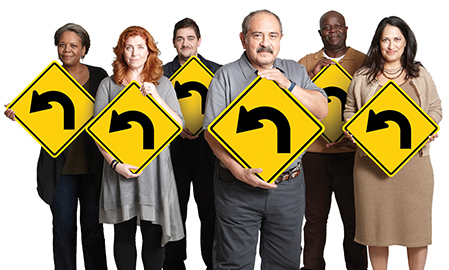Many reasons played into Leo Tarkovsky’s choice to join McCann HumanCare as president, North America last November. He saw substantial growth potential in the 42-person-strong, 10-year-old McCann Health property. He was impressed by the company’s heritage, particularly its work on superbrands like Lunesta, Viagra and Chantix. But mostly, he sensed a bigger-picture opportunity that, in his mind, doesn’t come around all that often: to rethink, reshape and otherwise transform conventional notions of what a consumer healthcare agency can and should be.
That’s no small ambition—but Tarkovsky isn’t known for his timidity. Over the course of a 20-year career, most recently as director of business strategy for healthcare at JWT New York, Tarkovsky has worked with most of the pharma industry’s esteemed behemoths. That’s why it’s a touch surprising when, in response to a question about his priorities, he ranks diversification of client base near the head of the list.
“In the past, McCann HumanCare has gravitated towards traditional big pharma brands—and obviously there’s nothing wrong with that,” Tarkovsky explains. “But for any agency to be viable today and into the future, it needs to diversify.”
Many agency heads preach the diversification gospel, but Tarkovsky is one of the few who has acted on it. Since his arrival, McCann HumanCare has pitched OTC brands, hospitals, healthcare systems and what he describes as “major retailers.” While the company isn’t about to give the heave-ho to longtime clients like Eli Lilly, Merck and GlaxoSmithKline, Tarkovsky’s enthusiasm spikes when he talks about the firm’s new practice that targets pharmacies big and small.
“The pharmacist is destined to play a more important role, so how do you make that pharmacist an advocate?,” he asks. “Pharmacists represent a whole new potential channel. They’re interacting with consumers; they’re not just dispensers [of prescriptions] anymore.”
It’s that “explosion of choice,” in Tarkovsky’s words, that will drive McCann HumanCare’s evolution in the months ahead. “It’s no longer, ‘I’m sick, I’m going to the doctor,’” he continues. “More than ever, we have to be in charge of our own health, which means looking at chiropractors, Chinese medicine, hospitals, procedures, you name it. That has major implications for what a healthcare agency should be.”
On one hand, Tarkovsky rhapsodizes about having inherited a high-performing operation, especially as it pertains to McCann HumanCare’s digital chops. “Fifty percent of our revenue comes from digital—that’s not how I saw HumanCare from the outside. I thought, ‘Wow, from a channel standpoint, this is not your grandfather’s firm,’” he explains with a laugh.
At the same time, he believes evolving the agency poses a tough challenge, likening it to “flying on an airplane while fixing the airplane and building a whole new airplane.” To confront the challenges ahead, he hopes to inject “a bit of a startup mentality” into the agency’s mindset. His first major hire—EVP, executive creative director Auge Reichenberg, who joined the company in late April from Rosetta—offers a hint as to the type of thinker he wants by his side. If Tarkovsky realizes his goal of doubling the current head count within the next year or so, she won’t be the last.
“Augé has guts,” he says succinctly. “She wants this creative department to become a prophet for this digital age. She has the drive and aspiration we need to make sure we don’t lose our momentum.”
From the July 01, 2014 Issue of MM+M - Medical Marketing and Media








